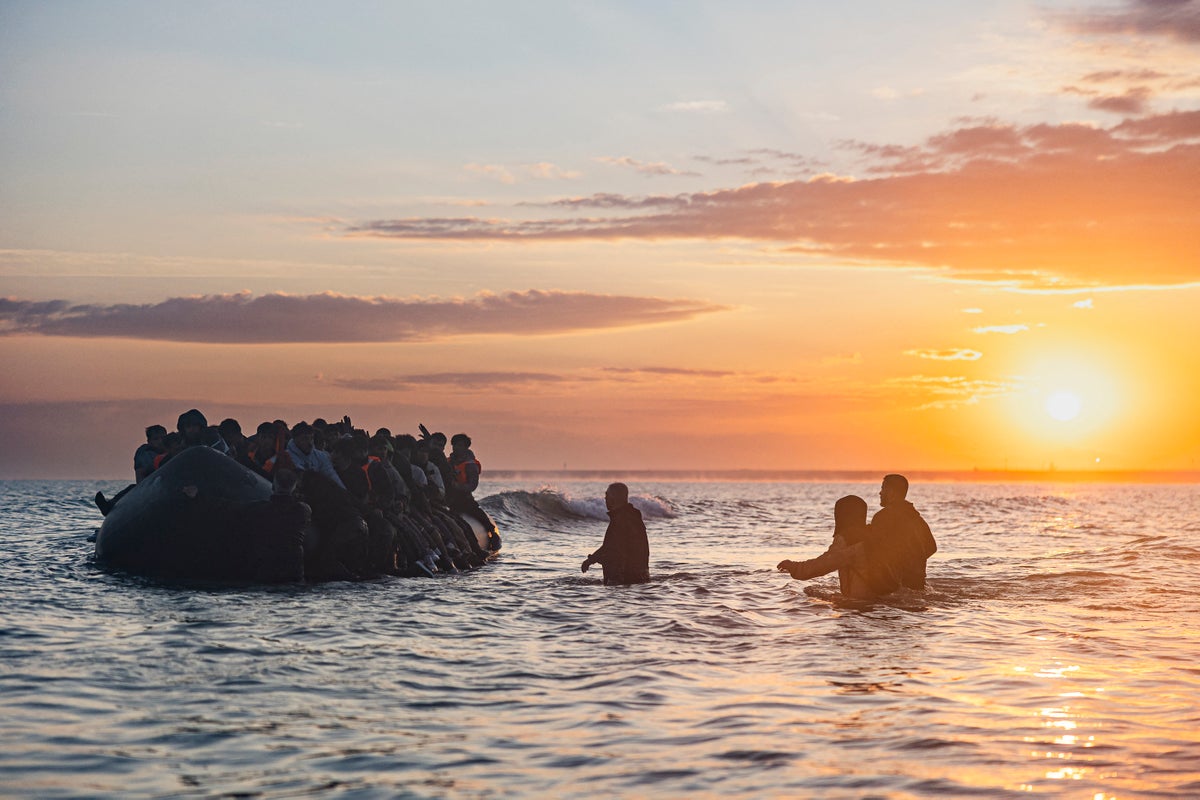Maybe everyone can agree on one thing: if stopping the boats was easy, it would have been done by now. Whether the home secretary, Yvette Cooper, ever deluded herself otherwise, a year of only limited progress in the government’s mission to “smash the gangs” must have brought home to her just how intractable irregular migration is.
The numbers of those crossing the Channel are as high as ever – partly because of the warm weather and calm waters, but also because the criminals who run these people-smuggling businesses are smart and innovative.
When Keir Starmer said he would bring the same legal powers and resources to the criminal gangs as had been applied to terrorism and drugs, he seemed to have forgotten that those wars are also far from over – let alone won.
Will more of the same work? Cooper must hope so. She’s promising another £100m for the National Crime Agency to recruit more officers, and there’ll be enhanced “detection technology” to defeat the people traffickers. Making those distasteful online “ads” for smuggling services is to be a specific criminal offence.
Less convincingly, the government proposes to financially penalise universities where too many foreign students fail to complete their courses because they use their study visas as the first stage in an asylum application.
How the university applications officers are supposed to vet all their student applicants in this way is far from clear – quite aside from the fact that the right to claim asylum is absolute and universal under the European Convention on Human Rights (ECHR). This, by the way, is why no migrant seeking refugee status can be labelled “illegal”, even though that is what was laid down in domestic law by the previous administration.
So Cooper is in this for the long haul, making slow, incremental progress both at home and in cooperation with other concerned nations near and far, patiently waiting for the forces of law and order to push their investigations and prosecutions forward. Any single measure, inevitably, tends to get dismissed as hopelessly inadequate.
How, it is asked, can the German authorities stop the trade in dinghies and marine engines? How will a crackdown on TikTok videos stop anyone trying to make the journey? Will the treaty with the French, agreed last month, ever be scaled up to make a real difference? Even if one gang is broken up, surely there will be more ready to take their trade?
Such scepticism is entirely justified, but it is no reason to give up. Cooper’s political pitch has to be that only painstakingly slow, hard work – constantly bearing down on the gangs, working through the vast asylum claim backlog, and getting other countries to take or take back the failed asylum seekers – can succeed.
This dedicated effort has to be contrasted with the deceptively easy solutions promised by Reform UK. Nigel Farage, in other words, does not have the answers and would not solve the problem.
Just the same as Brexit, in fact, when he also made extravagant claims about how it would solve our economic problems, and then blamed everyone else when it left the nation impoverished. Now he’s blaming the migrants rather than Brussels, and his policies – little more than slogans – should be treated with extreme caution.
Leaving the ECHR, for example – which he used to call “Brexit 2.0” before Brexit 1.0 turned out to be a flop – wouldn’t change a thing over in Calais.
Yes, it would make claiming asylum impossible, and it would, perhaps in some cases, speed deportation and reduce spurious human rights claims by criminals. But it wouldn’t stop anyone – refugee or economic migrant – from seeking a better life in the UK, and doing whatever it takes and paying any price (including loss of their own life) in the process.
A policy of “detain, deport”, as so lazily tossed out by the radical right, only works if migrants continue to give themselves up.
If they cannot claim asylum, because the ECHR right to is abolished, then they will not be willing to approach Border Force so that they can indeed be detained and then removed (somehow – again, never entirely clear to where).
Instead, we will have irregular crossings turning into irregular, uncurated landings along the south coast of England. And even if the English Channel was somehow made small boat-proof, other methods would be found, such as further abuse of the visa system. Getting sent to Rwanda, say, only acts as a deterrent if you get caught in the first place. But pushing refugees and economic migrants into the grey economy and slum accommodation run by gangs really would turn them into the criminals they do not wish to be.
It’s not that the remedies offered by Farage, Rupert Lowe, various fascists and some Conservatives are cruel and morally shameful, which they are, but that they are impractical and costly. They’re inured to personal abuse. In the words of Lowe: “You can call me ‘far right’, you can call me ‘racist’ – I just do not care. Detain these men, and deport these men – every single one of them.”
Except it wouldn’t work, for the reasons explained. Even getting the Royal Navy to attack the boats wouldn’t succeed, because there are too many dinghies and too few Navy vessels (and the Navy has other things to do).
The Farage/Lowe way of controlling migration is to sloganise and strike a pose, never to make a practical proposal. Labour’s way is to get it done slowly but surely – grinding hard graft, with some respect for humanity, compassion for the most vulnerable, and dealing swiftly with any criminality. It just needs to be seen to be working, and it ain’t easy.




